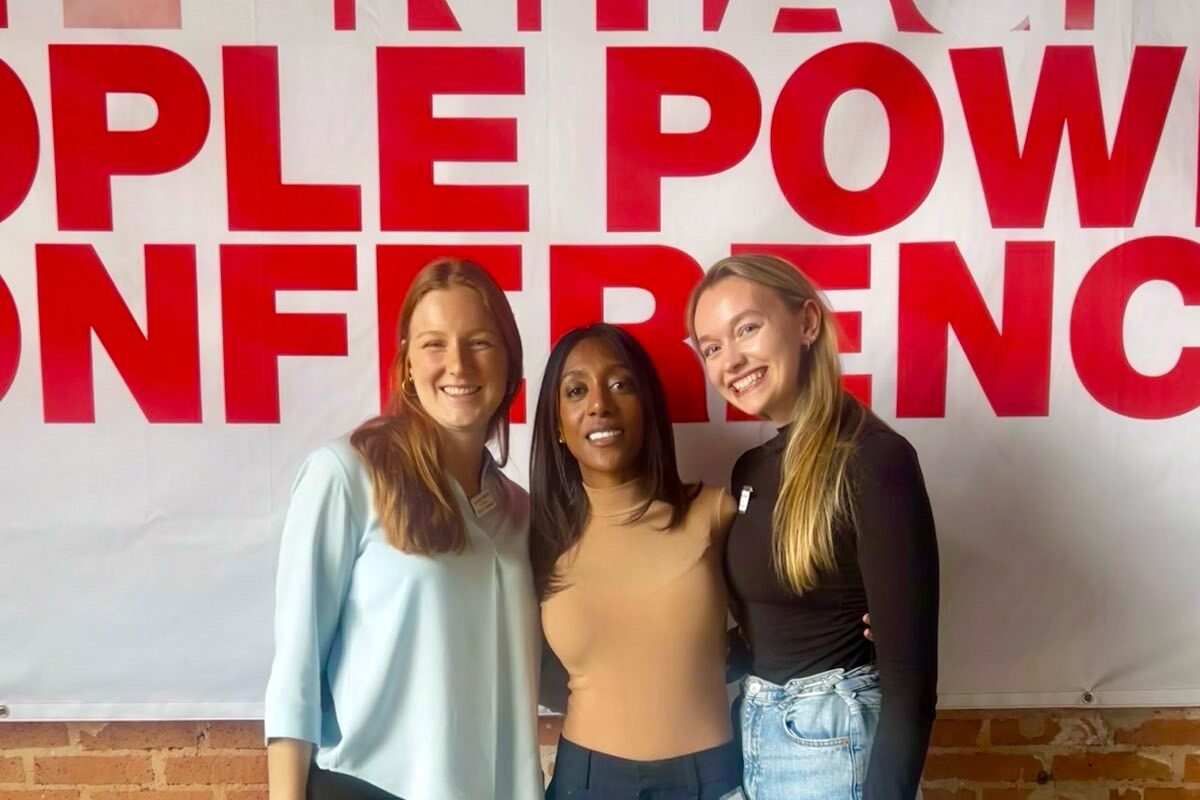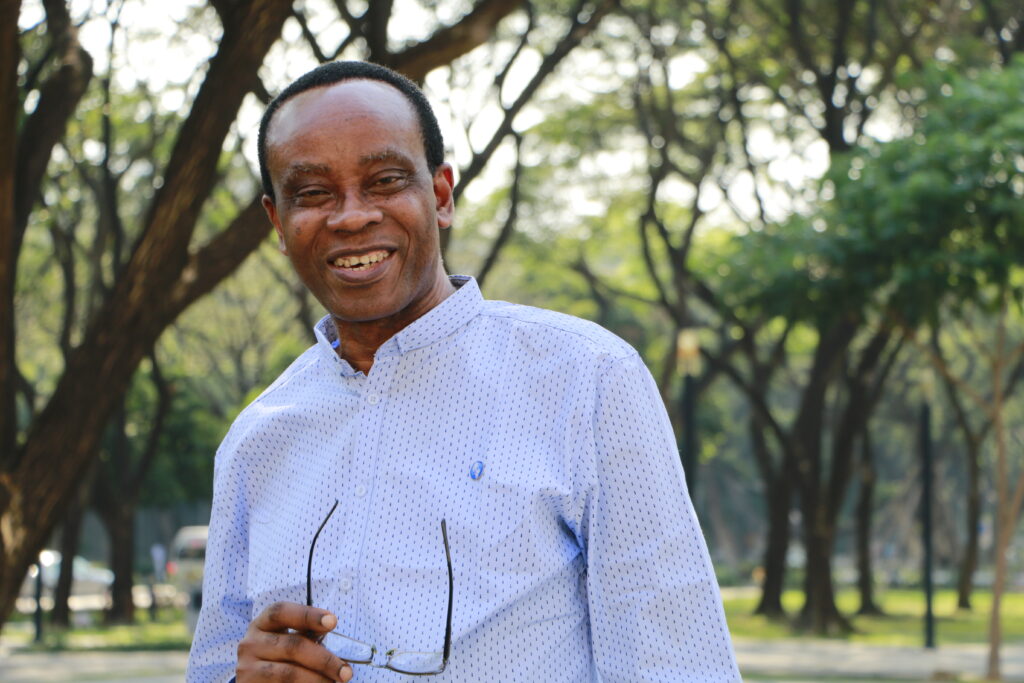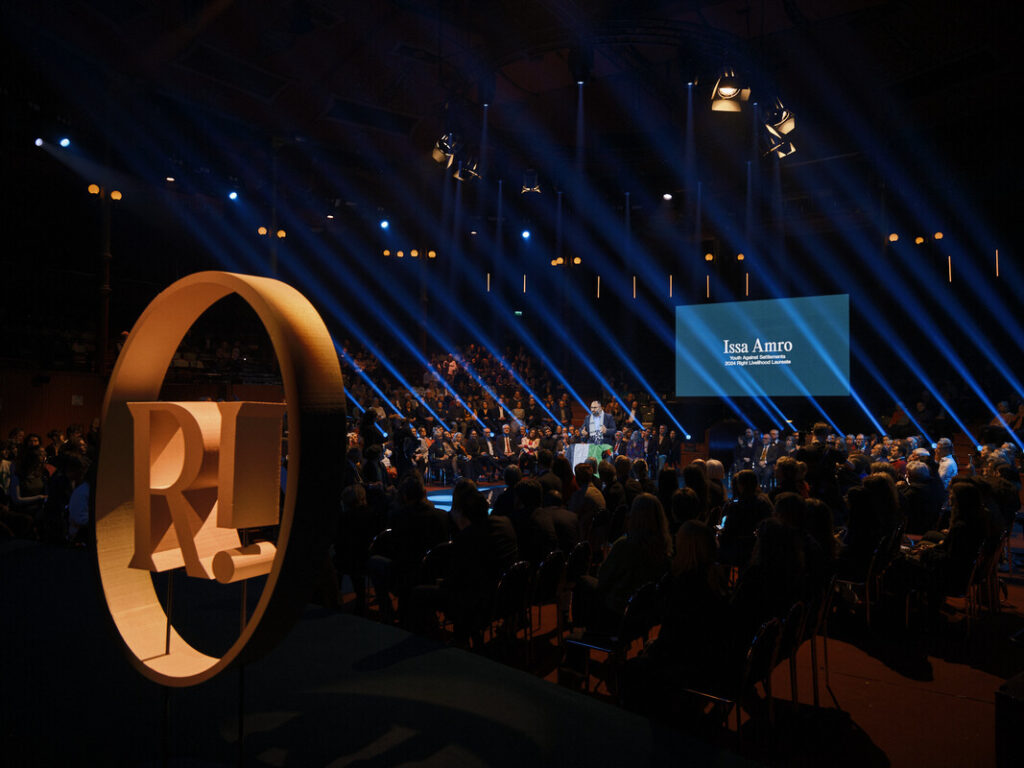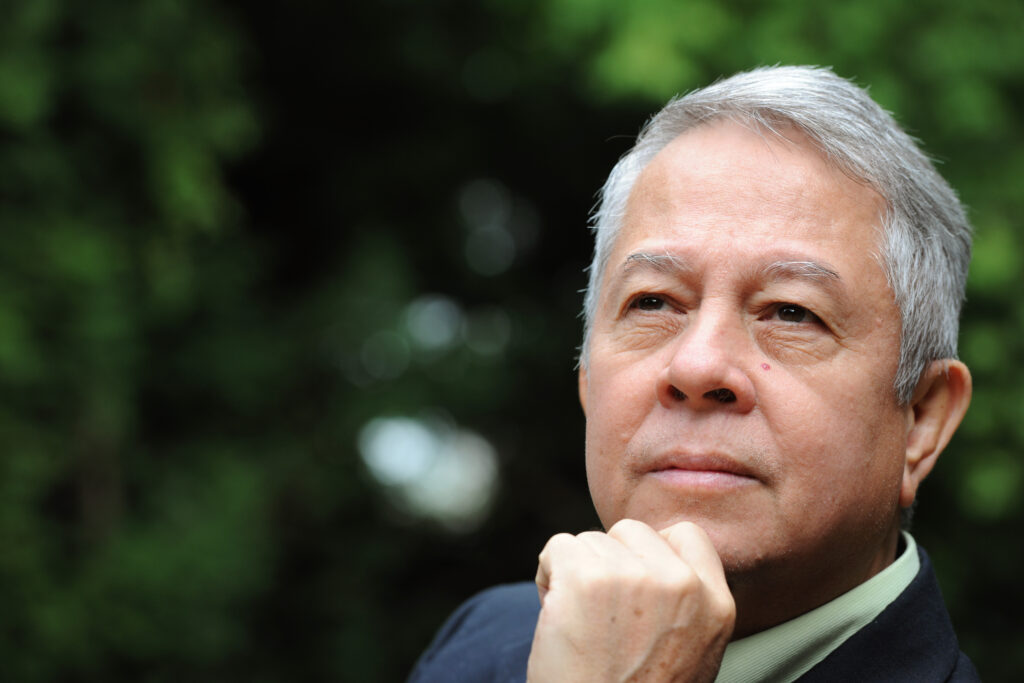This April, changemakers from across the globe came together in the heart of the Danish capital for the 2nd Copenhagen People Power Conference, hosted by ActionAid Denmark and partners. Coming from different corners of the Right Livelihood team—education, fundraising and advocacy—Samah Saeed, Leandra Pedretti, and Maike Hansen joined the conference. They brought back these reflections.
Across panels, keynotes, and informal exchanges, the message from the conference was clear: current crises are not isolated events but interconnected symptoms of a collapsing global system. Rather than attempting to fix what is fundamentally broken, we must imagine and build just and sustainable alternatives.
The event offered a vital platform to learn directly from activists and organisers on the frontlines, explore practical ways to support social movements, and connect with others addressing similar challenges in diverse contexts.
With the theme ‘How can we come together to support social movements that lead the charge for just peace from below?’, the conference welcomed nearly 300 participants from around the world — including social movement leaders, activists, and academics, as well as donors, government officials, United Nations representatives, and members of non-governmental and civil society organisations.
Among them were three Right Livelihood Laureates: 2022 Laureate Oleksandra Matviichuk from Ukraine, 2016 Laureate organisation Syria Civil Defence or popularly known as the White Helmets (represented by Nada Al Rashed and Fatma Alobeed), and Jamila Raqib, legacy holder for 2012 Laureate Gene Sharp, with each Laureate contributing profoundly to the dialogue on justice, resistance, and collective power.
We listened to Matviichuk sharing powerful firsthand accounts of Russian war crimes during Ukraine’s ongoing invasion, exposing the occupation as a form of war that inflicts widespread, often hidden, human suffering. She challenged any notion of peace that overlooks justice, insisting that people’s experiences, rights, and interests must be central to any peace process.
Raqib offered a powerful keynote on the future of people-power: building movements that last, and moderated a session on organising and nonviolent resistance in the midst of war. She reminded us that nonviolent resistance is not simply a moral stance, but a strategy that requires training, structure, and long-term commitment, and underscored that movements need more than inspiration: they need tools, solidarity, and support.
The screening of the White Helmets’ documentary was followed by a conversation with representatives from the organisation: Al Rashed and Alobeed shared insights into their ongoing work. While the war in Syria is officially over, their mission is not. It has shifted toward addressing the long-term impacts of war and supporting communities living with its aftermath.
Confronting Crisis with People Power
In an era marked by intersecting crises— violence and genocide, climate collapse, authoritarianism and shrinking civic spaces —the conference served as a vital platform for shared learning, solidarity and coordination.
But it was more than just a space to reflect; it was a call to action. What stood out most was the range of voices and the honesty of the discussions. Panellists critically discussed dominant peacebuilding models and the limitations of non-violence and people power in the face of state violence. Their contributions called for systemic change, urging concrete shifts to challenge entrenched power structures and push for more courageous international responses, alongside support and funding models that meet the realities of movements on the ground.
Further, it re-emphasised the need to centre and amplify the voices and experiences of those most affected by crises—people on the frontlines who are already driving change—recognising their leadership, resilience, and vital role in creating the pathways for sustainable, people-powered peace. We were reminded that solidarity needs to be meaningful and unconditional, not defined by political agendas or conditional support.
What We’re Bringing Home
We returned to Stockholm with a renewed commitment to our work and a deeper appreciation for the vital role that collective spaces like this conference play in the ongoing struggle for justice. These gatherings bring together activists, organisations, and movements from diverse contexts to exchange ideas, share strategies, and learn from those driving change on the frontlines. They provide a platform to amplify voices, build alliances, and nurture the collective energy needed to build a world where justice and peace is not managed from above, but built — together — from the ground up.
For the Right Livelihood team, the conference offered an opportunity to connect across our workstreams, reflect on our organisational role within the broader ecosystem, and engage directly with activists, including Laureates, and civil society allies. Through honest conversations and emerging partnerships, we gained valuable insights into how we can better support Laureates and their movements, particularly when it comes to advocacy, protection and strategic networks.
Being present in these spaces is essential—not just to build connections, but to ensure our work aligns with and meaningfully contributes to the collective effort for systemic change.
Bios
Based at our Stockholm office, Maike Hansen works with Right Livelihood’s advocacy and protection initiatives as a Junior Programme Officer, facilitating Laureate engagement with strategic networks and actors, and coordinating the days around the annual Award Presentation.
Samah Saeed is an Education Officer based in our Stockholm office, working with learning resources for activists and university students on systems change based on the examples of the Right Livelihood Laureates. She also co-organises meetings within the global Right Livelihood College network and the Global Campus of Human Rights.
Leandra Pedretti works as a Junior Fundraising Officer in our Stockholm office, supporting Right Livelihood’s outreach and development efforts. She manages fundraising campaigns and events, and ensures that our supporters are informed about and engaged with the organisation’s ongoing work.




























































































































































































































































































































